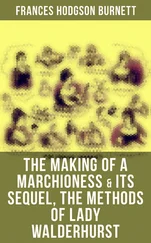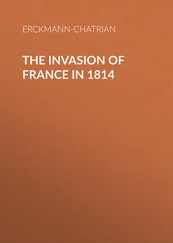Erckmann-Chatrian - Waterloo - A sequel to The Conscript of 1813
Здесь есть возможность читать онлайн «Erckmann-Chatrian - Waterloo - A sequel to The Conscript of 1813» — ознакомительный отрывок электронной книги совершенно бесплатно, а после прочтения отрывка купить полную версию. В некоторых случаях можно слушать аудио, скачать через торрент в формате fb2 и присутствует краткое содержание. Жанр: foreign_antique, foreign_prose, Историческая проза, на английском языке. Описание произведения, (предисловие) а так же отзывы посетителей доступны на портале библиотеки ЛибКат.
- Название:Waterloo: A sequel to The Conscript of 1813
- Автор:
- Жанр:
- Год:неизвестен
- ISBN:нет данных
- Рейтинг книги:5 / 5. Голосов: 1
-
Избранное:Добавить в избранное
- Отзывы:
-
Ваша оценка:
- 100
- 1
- 2
- 3
- 4
- 5
Waterloo: A sequel to The Conscript of 1813: краткое содержание, описание и аннотация
Предлагаем к чтению аннотацию, описание, краткое содержание или предисловие (зависит от того, что написал сам автор книги «Waterloo: A sequel to The Conscript of 1813»). Если вы не нашли необходимую информацию о книге — напишите в комментариях, мы постараемся отыскать её.
Waterloo: A sequel to The Conscript of 1813 — читать онлайн ознакомительный отрывок
Ниже представлен текст книги, разбитый по страницам. Система сохранения места последней прочитанной страницы, позволяет с удобством читать онлайн бесплатно книгу «Waterloo: A sequel to The Conscript of 1813», без необходимости каждый раз заново искать на чём Вы остановились. Поставьте закладку, и сможете в любой момент перейти на страницу, на которой закончили чтение.
Интервал:
Закладка:
"Yes," interrupted Father Goulden, "for George Cadoudal, – I read it last evening in the gazette."
"That is it, of Cadoudal," said Aunt Grédel. "You see, Joseph, hearing that, I thought at once, 'now we will have the permit.' We are going to have processions and atonements, and we will all go together, Joseph, Catherine, and I. We shall be the first, and everybody will say, 'They are good royalists, they are well disposed.' The priest will hear of it. Now the priests have long arms, as in the time of the generals and colonels, – we will go and see him, he will receive us favorably, and will even make a petition for us. And I tell you this will succeed, we shall not fail this time."
She spoke quite low as she explained all this, and seemed well satisfied with her ingenuity. I felt happy too, and thought, "That is what we must do, Aunt Grédel is right." But on looking at Father Goulden, I saw he was very grave, and that he had turned away and was looking at a watch through his glass, and knitting his big white eyebrows. So, knowing he was not pleased, I said:
"I think myself, that would succeed, but before we do anything I would like to have Father Goulden's opinion."
Then he turned round and said:
"Every one is free, Joseph, to follow his own conscience. To make an expiation for the death of Louis XVI. is all very well; honest people of all parties will have nothing to say, if they are royalists, of course; but if you kneel from self-interest, you had better stay at home. As for Louis XVI., I will let him pass, but for Pichegru, Moreau, and Cadoudal, – that is altogether another thing. Pichegru surrendered his troops to the enemy, Moreau fought against France, and George Cadoudal was an assassin, – three kinds of ambitious men, who asked for nothing but to oppress us, and all three deserved their fate. That is what I think."
"But what has all that to do with us, pray?" exclaimed Aunt Grédel. "We will not go for them, we will go to get our permit. I despise all the rest, and so does Joseph, do you not?"
I was greatly embarrassed, for what Father Goulden said seemed to me to be right, and he, seeing this, said:
"I understand the love of young people, Mother Grédel, but we must not use such means to induce a young man to sacrifice what he thinks is right. If Joseph does not hold the same opinion as I do of Pichegru and Moreau and Cadoudal, very well, let him go to the procession. I shall not reproach him for it, but as for me, I shall not go."
"I shall not go either. Mr. Goulden is right," I replied.
I saw Aunt Grédel was displeased, she turned quite red, but was calm again in a moment, and added:
"Very well! Catherine and I will go, because we mock at all those old notions."
Father Goulden could not help smiling as he saw her anger.
"Yes, everybody is free," said he, "to do as he pleases, so do as you like."
Aunt Grédel took up her basket and went away, and he laughed and made a sign to me to go with her. I very quickly had my coat on and overtook her at the corner of the street.
"Listen, Joseph," said she, as she went toward the square, "Father Goulden is an excellent man, but he is an old fool! He has never since I knew him been satisfied with anything. He does not say so, but the Republic is always in his head. He thinks of nothing but his old Republic, when everybody was a sovereign – beggars, tinkers, soap-boilers, Jews, and Christians. There is no sense in it. But what are we to do? If he were not such an excellent man I would not care for him, but we must remember he has taught you a good trade, and done us all many favors, and we owe him great respect, that is why I hurried away, for I was inclined to be angry."
"You did right," I said, "I love Father Goulden like my father, and you like my mother, and nothing could give me so much pain as to see you angry with one another."
"I quarrel with a man like him!" said Aunt Grédel. "I would rather jump out of the window. No, no, but we need not listen to all he says, for I insist that this procession is a good thing for us, that the priest will get the permit for us, and that is the principal thing. Catherine and I will go, and as Mr. Goulden will stay at home, you had best stay too. But I am certain that three-fourths of the town and country round will go, and whether it be for Moreau or Pichegru or Cadoudal it is of no consequence. It will be very fine. You will see!"
"I believe you," I answered.
We had reached the German gate; I kissed her again, and went back quite happy to my work.
III
I recollect this visit of Aunt Grédel because eight days after the processions and atonements and sermons commenced, and did not end till the return of the Emperor in 1815, and then they commenced again and continued till the fall of Charles X. in 1830. Everybody who was then alive knows there was no end to them. So when I think of Napoleon, I hear the cannon of the arsenal thunder and the panes of our windows rattle, and Father Goulden cries out from his bed: "Another victory, Joseph! Ha! ha! ha! Always victories." And when I think of Louis XVIII., I hear the bells ring and I imagine Father Brainstein and his two big boys hanging to the ropes, and I hear Father Goulden laugh and say: "That, Joseph, is for Saint Magloire or Saint Polycarp."
I cannot think of those days in any other way.
Under the Empire I see too at nightfall, Father Coiffé, Nicholas Rolfo, and five or six other veterans, loading their cannon for the evening salute of twenty-one guns, while half of Pfalzbourg stand on the opposite bastion looking at the red light, and smoke, and watching the wads as they fall into the moat; then the illuminations at night and the crackers and rockets, I hear the children cry Vive l'Empereur , and then some days after, the death notices and the conscription. Under Louis XVIII. I see the altars and the peasants with their carts full of moss and broom and young pines; the ladies coming out of their houses with great vases of flowers; people carrying their chandeliers and crucifixes, and then the processions – the priest and his vicars, the choir boys and Jacob Cloutier, Purrhus, and Tribou, the singers; the beadle Koekli, with his red robe and his banner which swept the skies, the bells ringing their full peals; Mr. Jourdan, the new mayor, with his great red face, his beautiful uniform with his cross of St. Louis, and the commandant with his three-cornered hat under his arm, his great peruke frosted with powder, and his uniform glittering in the sunshine, and behind them the town council, and the innumerable torches, which they lighted for each other as the wind blew them out; the Swiss, Jean-Peter Siroti, with his blue beard closely shaven and his splendid hat pointing across his shoulders, his broad white silk shoulder-belt sprinkled with fleur-de-lis across his breast, his halberd erect, glistening like a plate of silver; the young girls, ladies, and thousands of country people in their Sunday clothes, praying in concert with the old people at their head, from each village, who kept repeating incessantly, "pray for us, pray for us." With the streets full of leaves and garlands and the white flags in the windows, the Jews and the Lutherans looking out from their closed blinds and the sun lighting up the grand sight below. This continued from 1814 to 1830, except during the hundred days, not to speak of the missions, the bishop's visits, and other extraordinary ceremonies. I like best to tell you all this at once, for if I should undertake to describe one procession after another the story would be too long.
Well! this commenced the 19th of May, and the same day that Harmentier announced the grand atonement, there arrived five preachers from Nancy, young men, who preached during the whole week, from morning until midnight. This was to prepare for the atonement; nothing else was talked about in the town, the people were converted, and all the women and girls went to confession. It was rumored also that the national property was to be restored, and that the poor men would be separated from the respectable people by the procession, because the beggars would not dare to show themselves. You may imagine my chagrin at being obliged, in spite of myself, to remain among the poor people; but, thank God! I had nothing to reproach myself with in regard to the death of Louis XVI., and I had none of the national property, and all I wanted was permission to marry Catherine. I thought with Aunt Grédel that Father Goulden was very obstinate, but I never dared to say a word to him about that. I was very unhappy, the more so, because the people who came to us to have their watches repaired, respectable citizens, mayors, foresters, etc., approved of all these sermons, and said that the like had never been heard. Mr. Goulden always kept on his work while listening to them, and when it was done he would turn to them and say, "Here is your watch, Mr. Christopher or Mr. Nicholas; it is so and so much." He did not seem to be interested in these matters, and it was only when one and another would speak of the national property, of the rebellion of twenty-five years, and of expiating past crimes, that he would take off his spectacles and raise his head to listen, and would say with an air of surprise, "Pshaw! well! well! that is fine! that is, Mr. Claude! indeed you astonish me. These young men preach so well then? Well, if the work were not so pressing, I would go and hear them. I need instruction also."
Читать дальшеИнтервал:
Закладка:
Похожие книги на «Waterloo: A sequel to The Conscript of 1813»
Представляем Вашему вниманию похожие книги на «Waterloo: A sequel to The Conscript of 1813» списком для выбора. Мы отобрали схожую по названию и смыслу литературу в надежде предоставить читателям больше вариантов отыскать новые, интересные, ещё непрочитанные произведения.
Обсуждение, отзывы о книге «Waterloo: A sequel to The Conscript of 1813» и просто собственные мнения читателей. Оставьте ваши комментарии, напишите, что Вы думаете о произведении, его смысле или главных героях. Укажите что конкретно понравилось, а что нет, и почему Вы так считаете.











